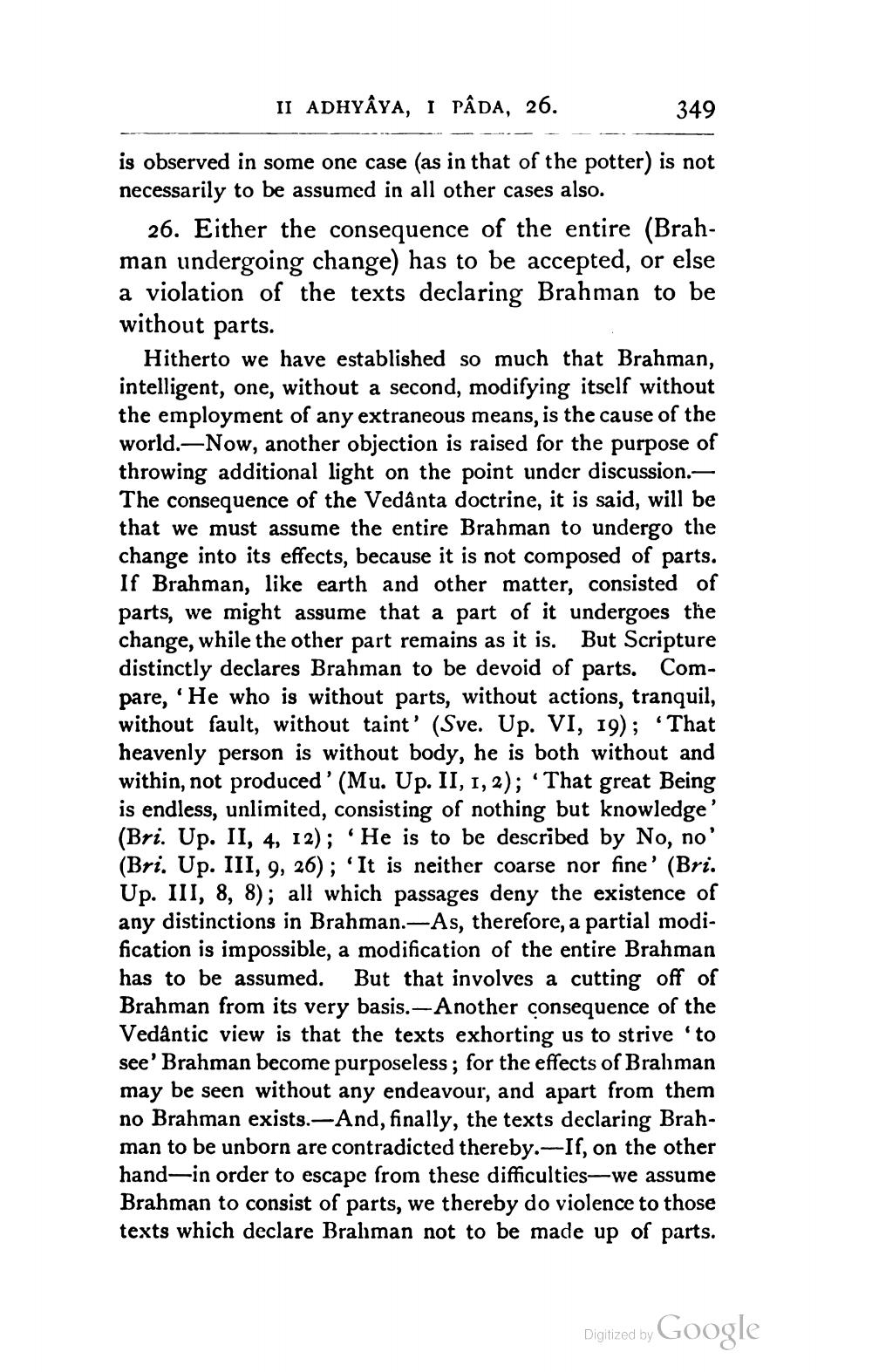________________
II ADHYÂYA, I PÂDA, 26.
349
is observed in some one case (as in that of the potter) is not necessarily to be assumed in all other cases also.
26. Either the consequence of the entire (Brahman undergoing change) has to be accepted, or else a violation of the texts declaring Brahman to be without parts.
Hitherto we have established so much that Brahman, intelligent, one, without a second, modifying itself without the employment of any extraneous means, is the cause of the world.—Now, another objection is raised for the purpose of throwing additional light on the point under discussion.The consequence of the Vedanta doctrine, it is said, will be that we must assume the entire Brahman to undergo the change into its effects, because it is not composed of parts. If Brahman, like earth and other matter, consisted of parts, we might assume that a part of it undergoes the change, while the other part remains as it is. But Scripture distinctly declares Brahman to be devoid of parts. Compare, 'He who is without parts, without actions, tranquil, without fault, without taint' (Sve. Up. VI, 19); "That heavenly person is without body, he is both without and within, not produced' (Mu. Up. II, 1, 2); “That great Being is endless, unlimited, consisting of nothing but knowledge' (Bri. Up. II, 4, 12); 'He is to be described by No, no' (Bri. Up. III, 9, 26); 'It is neither coarse nor fine' (Bri. Up. III, 8, 8); all which passages deny the existence of any distinctions in Brahman.-As, therefore, a partial modification is impossible, a modification of the entire Brahman has to be assumed. But that involves a cutting off of Brahman from its very basis.-Another consequence of the Vedântic view is that the texts exhorting us to strive to see' Brahman become purposeless; for the effects of Brahman may be seen without any endeavour, and apart from them no Brahman exists.-And, finally, the texts declaring Brahman to be unborn are contradicted thereby.-If, on the other hand-in order to escape from these difficulties—we assume Brahman to consist of parts, we thereby do violence to those texts which declare Bralıman not to be made up of parts.
Digitized by Google




